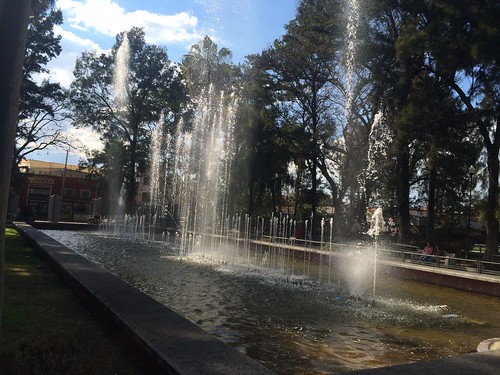While I work on urban water governance issues, I’m not an expert on every city, and particularly, I am wary of offering any “silver bullet” kind of solutions to drought crises because cities are heterogeneous entities and therefore there is no single policy decision that will have the necessary impact. When I first started reading about Cape Town’s water crisis, my first thought was “why not apply a soft path approach?”
The soft path approach to water management is predicated on the premise that behavioural change can occur and water demand can be properly managed in a way that reduces stress on urban infrastructure and reduce challenges facing cities. I first heard about the soft path when I started working with one of my students on a paper, and when I first met Dr. David Brooks (with whom I share the privilege of being an editorial board member of Water International, the journal). Dr. Brooks has championed the notion of a soft path to water management.
The soft path to water management would seem like the logical trajectory to ensuring Cape Town would not run out of the vital liquid by the third week of April, as it is predicted. Though some analysts (like Dr. Anne Van Loon, University of Birmingham) appear to be confident that Cape Town could learn from other cities that have faced severe water shortages, like Sao Paulo, others (like Dr. Anthony Turton, a South African scholar of water governance) would seem to be less so, particularly given water utilities’ and local government behaviour in a context of widespread corruption.
My own view (given that many of the cities that I study are facing critical water stress) is that we probably need a mixture of soft path and hard path approaches, but since I know very little about the geo-hydrology of Cape Town and behaviour of South African water users, I’m very wary of wanting to propose a solution. But I do see that this will be a critical case for other cities to follow closely, because from the information I’ve been getting, the situation is quite critical. Not sure if a soft path management approach will be enough, to be quite honest, but I do look forward to seeing how the situation develops.
What worries me is that even though the concept of water recycling and the value of wastewater treatment is now en vogue (thanks to the World Water Assessment Programme’s 2018 report on wastewater as an untapped resource), I have been calling for a reconsideration of wastewater as a resource since 2004 and it’s 2018 and we are still not treating 100% of our wastewater, and we’re not recirculating it to our water systems, and we continue building houses and expanding cities, and covering areas where recharge could occur. Human behaviour in the face of a water crisis continues to be incredibly stupid, and I don’t know whether we will be able to change it in the near future, or fast enough to solve looming crises like Capetown’s.
You can read some more stuff on the soft path management approach here, and here, and here, here and here.



0 Responses
Stay in touch with the conversation, subscribe to the RSS feed for comments on this post.